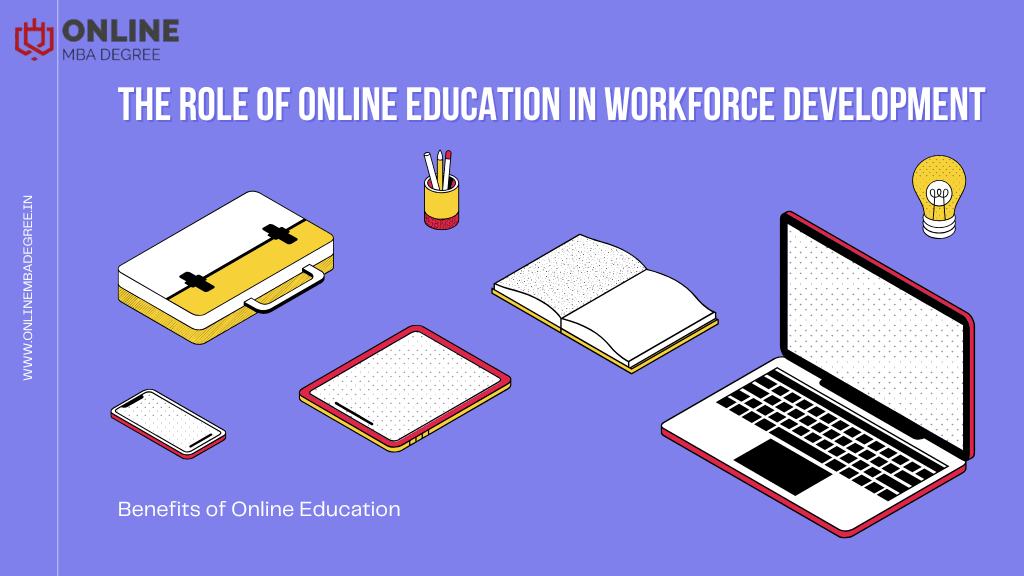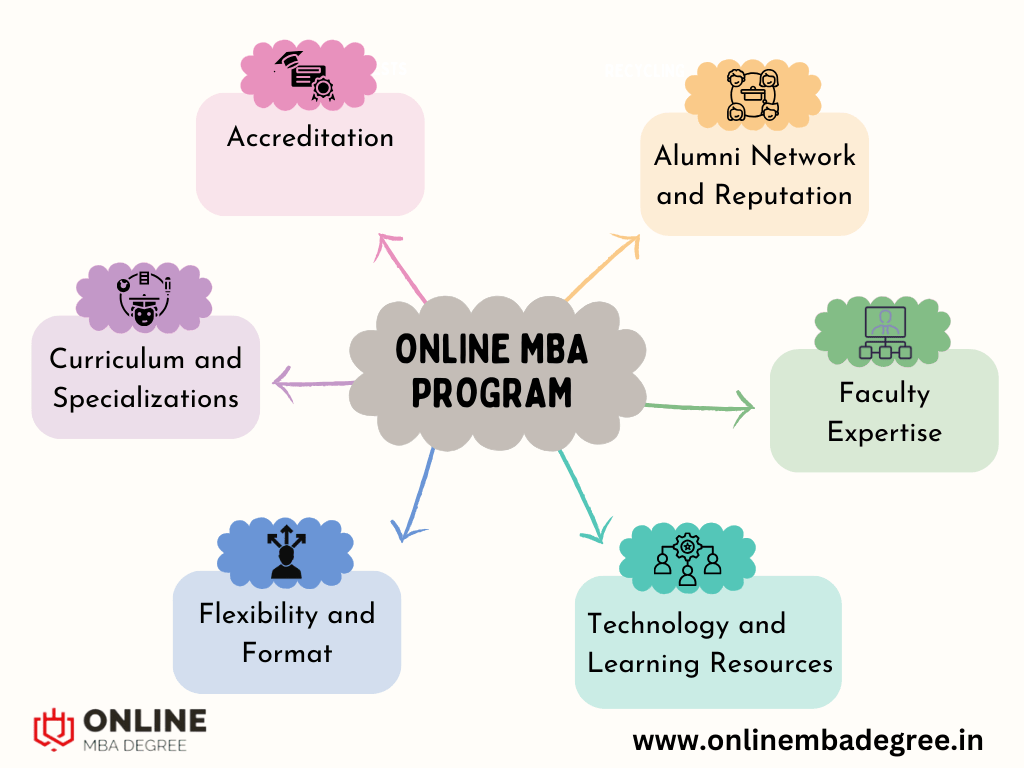UGC Announces Admissions in Two Academic Session 1st Batch(July/August) . 2nd Batch (January/February)
Get an Online MBA Degree by NAAC A++ Accredited Universities
Globally Recognised Universities
As per Govt. Online MBA Degree are Now Equivalent to Regular Degrees
Hurry Up! Admission Closing Soon. Only Few Seats Left. Enroll Now!
ODL & Online MBA Programs are Equivalent to Regular (Campus) Programs - To know more
UGC Announces Admissions in Two Academic Session 1st Batch(July/August) . 2nd Batch (January/February)
Get an Online MBA Degree by NAAC A++ Accredited Universities
Globally Recognised Universities
As per Govt. Online MBA Degree are Now Equivalent to Regular Degrees
Hurry Up! Admission Closing Soon. Only Few Seats Left. Enroll Now!
ODL & Online MBA Programs are Equivalent to Regular (Campus) Programs - To know more

What is Online Education? | Online Degree | Flexible Learning
In today’s digital age, online education has revolutionized the way students and professionals acquire knowledge and skills. With the advancement of technology and the increasing demand for flexible learning options, online education has become a mainstream alternative to traditional classroom learning. This mode of education provides learners with access to high-quality courses, expert instructors, and a variety of resources, all from the comfort of their homes.
Online Education – Flexible Learning, Course
Online education refers to the delivery of educational content through digital platforms, typically over the internet. It encompasses various formats, including fully online degree programs, certification courses, self-paced learning modules, and instructor-led virtual classes. With the use of multimedia tools, interactive content, and real-time discussions, online education replicates and often enhances the learning experience of traditional classrooms.
Online education is facilitated through learning management systems (LMS), where students can access lectures, assignments, discussion boards, and assessments. These platforms allow educators to create engaging content using videos, quizzes, live sessions, and AI-driven learning analytics to personalize student experiences. The evolution of online learning has led to the rise of Massive Open Online Courses (MOOCs), micro-credentials, and professional certifications, making education more accessible to diverse learners worldwide.
Benefits of Online Education
- Flexibility: One of the biggest advantages of online education is the ability to learn at one’s own pace and schedule. This is especially beneficial for working professionals, parents, and individuals with other commitments.
- Accessibility: Online education eliminates geographical barriers, allowing students from different parts of the world to access quality education without the need to relocate.
- Cost-Effective: Many online courses are more affordable than traditional education, with reduced expenses related to commuting, accommodation, and study materials.
- Wide Range of Courses: From business management and data science to arts and humanities, online platforms offer a vast array of courses to suit different interests and career goals.
- Personalized Learning: Online education platforms often utilize AI-driven recommendations and adaptive learning technologies to cater to individual learning styles and progress levels.
- Networking Opportunities: Virtual classrooms and discussion forums provide students with opportunities to interact with peers, industry experts, and faculty members from around the world.
- Enhanced Skill Development: Many online courses focus on practical skills, offering hands-on projects, case studies, and simulations that prepare learners for real-world challenges.
- Lifelong Learning: With the ease of access to various courses, individuals can continue upgrading their skills throughout their careers, staying relevant in an ever-evolving job market.
- Self-Discipline and Time Management: Since online learning requires a high level of independence, students develop crucial skills like time management, self-motivation, and accountability.
- Instant Feedback and Progress Tracking: Many online platforms provide real-time performance tracking, allowing learners to identify their strengths and areas for improvement through automated assessments and analytics.
- Diverse Learning Methods: Online education includes a variety of teaching methods such as video lectures, podcasts, discussion boards, and gamified learning, catering to different learning preferences.
- Eco-Friendly Learning: Online education reduces the need for printed materials and minimizes transportation emissions, making it a more environmentally sustainable option.
- Opportunities for Career Advancement: Many online courses are designed to provide job-ready skills and industry certifications, increasing career growth opportunities.
- Global Learning Experience: Students can enroll in courses from international institutions, gaining exposure to different cultures and business practices, which is particularly beneficial for global career aspirations.
- Reduced Social Pressure: Unlike traditional classrooms, online learning allows students to focus on their studies without the distractions or pressures of in-person interactions, making it ideal for those who thrive in self-directed environments.
The Role of Online Education in Workforce Development
As industries evolve, the demand for skilled professionals continues to rise. Online education plays a crucial role in workforce development by equipping individuals with the necessary skills to meet market demands. Companies increasingly support online learning initiatives for employees, offering training programs that align with business objectives. This enables employees to upskill and reskill, ensuring continuous professional growth and adaptability in the ever-changing job landscape. Organizations partnering with universities and online learning platforms create opportunities for employees to pursue certifications and degrees, fostering a culture of lifelong learning within the corporate environment.

Online Education and MBA Programs
The online MBA has gained significant popularity among aspiring business professionals. With accredited institutions offering comprehensive MBA programs online, students can pursue advanced business education without putting their careers on hold. These programs typically cover core subjects like finance, marketing, strategy, and leadership while offering specialization options to cater to specific industry needs. Many universities also offer global immersion programs, virtual internships, and capstone projects to enhance practical learning.
Online MBA programs leverage digital technologies to facilitate a rich learning experience. Live virtual classes, discussion forums, and case study analyses create an interactive learning environment similar to traditional business schools. Additionally, many programs include group projects and leadership training to develop teamwork and strategic thinking skills. Some institutions also offer executive online MBA programs designed for mid-career professionals looking to step into leadership roles.
Choosing the Right Online MBA Program
When selecting an online MBA program, consider the following factors:
- Accreditation: Ensure the program is recognized by reputable educational bodies such as AACSB, AMBA, or EQUIS.
- Curriculum and Specializations: Choose a program that aligns with your career goals and industry needs.
- Faculty and Industry Connections: Research the qualifications of instructors and the institution’s industry partnerships.
- Student Support Services: Look for programs that offer career counseling, mentorship, and networking opportunities.
- Technology and Learning Platform: A user-friendly interface and engaging digital tools enhance the overall learning experience.
- Alumni Network: Strong alumni connections can provide valuable career opportunities and professional guidance.
- Internships and Practical Exposure: Some online MBA programs incorporate live projects and internships with leading companies to give students real-world experience.
- Reputation and Employer Recognition: Ensure that the program is well-regarded by potential employers and industry leaders.
- Flexibility and Time Commitment: Assess whether the program’s structure, such as part-time or self-paced learning, suits your personal and professional schedule.
- Cost and Financial Aid Options: Compare tuition fees and check for scholarships, grants, or employer-sponsored programs to make the MBA more affordable.
- Mode of Delivery: Determine whether the program offers synchronous (live) or asynchronous (recorded) sessions based on your preferred learning style
Future of Online Education
As technology continues to advance, online education is expected to evolve further, integrating innovations like virtual reality (VR), augmented reality (AR), and artificial intelligence (AI) into learning environments. These advancements will enhance engagement and create immersive learning experiences. Additionally, blockchain technology may play a role in secure certification and credential verification, making online degrees even more credible and widely accepted.
The rise of adaptive learning platforms, which use AI to customize learning paths for each student, will further improve knowledge retention and skill development. Additionally, hybrid models that combine online coursework with in-person workshops or networking events will provide learners with the best of both digital and traditional education experiences.
Conclusion
Online education has transformed the way we learn, making high-quality education more accessible, flexible, and affordable. For professionals looking to enhance their business acumen, an online MBA presents a viable and effective option. By leveraging digital tools and virtual learning environments, online education continues to shape the future of higher learning and professional development. As technology advances, the online learning experience will become even more dynamic, bridging the gap between virtual and real-world applications.
GET FREE COUNSELING














